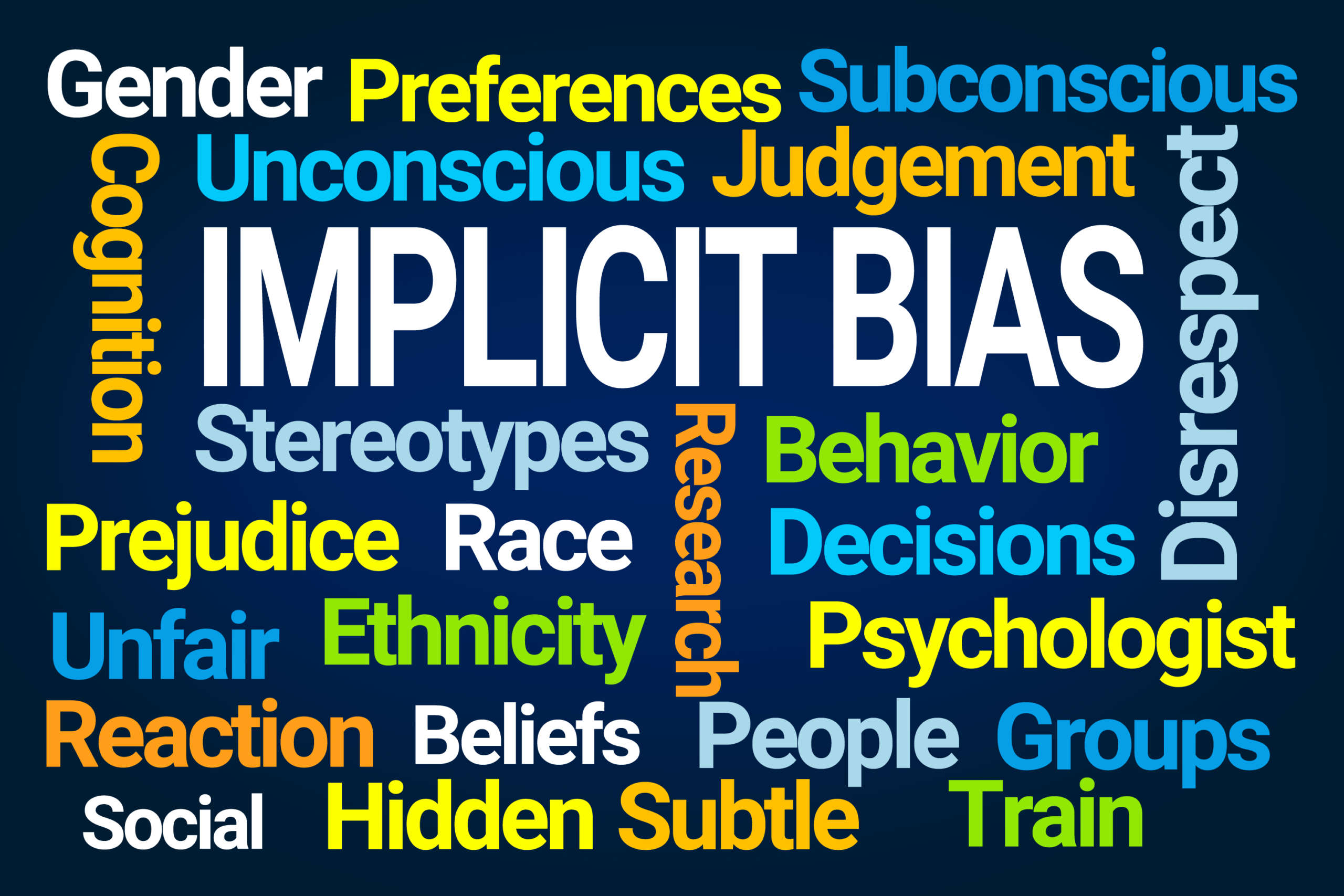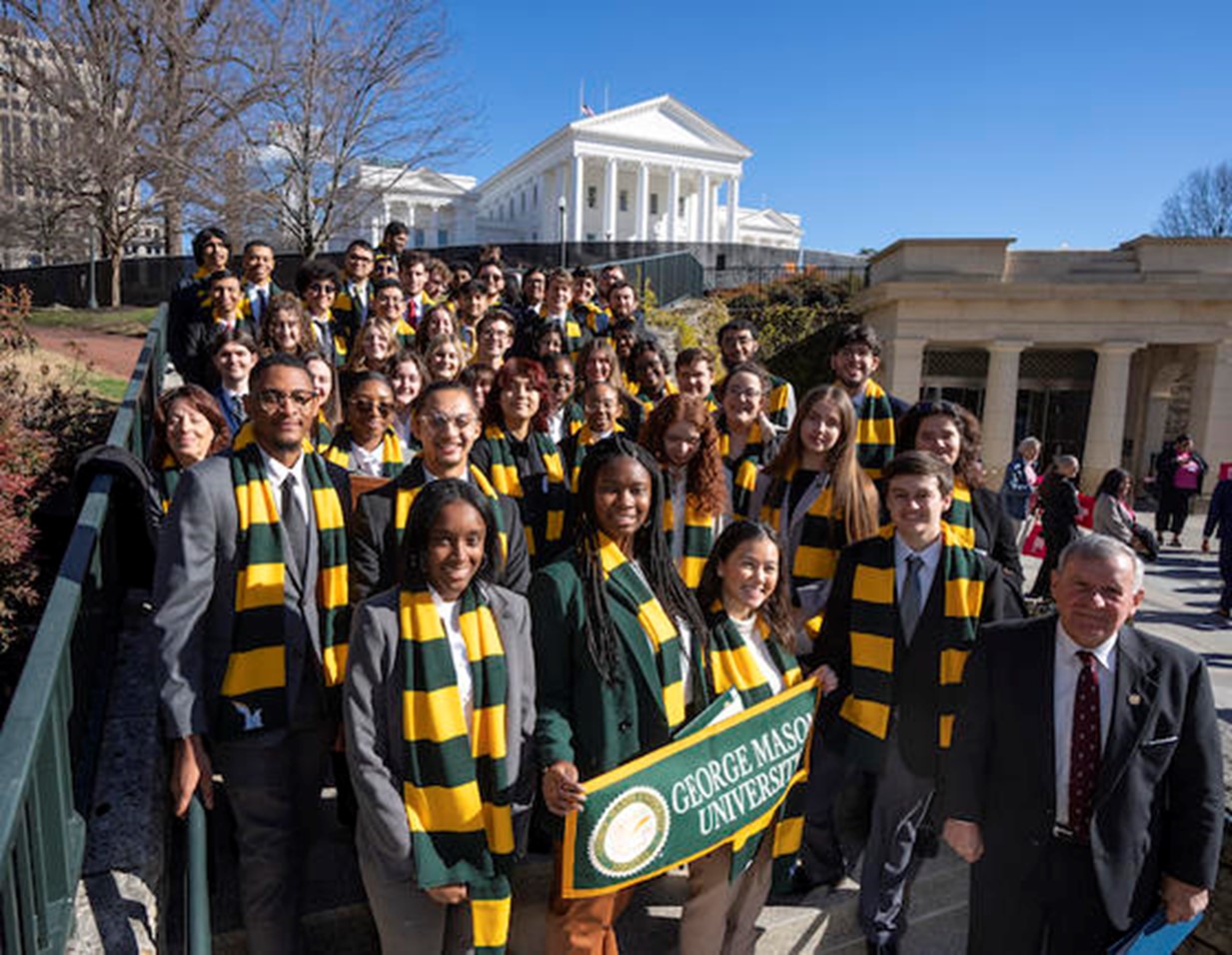Parents and Community Leaders Speak Up for Implicit Bias Training
Since the historic cases of Mendez v. Westminster in 1946 and later Brown v. Board of Education in 1954, it is a known fact that implicit bias is something that children learn at an early age, as studies have shown. In 2010, a similar study was created that demonstrated how children continue to show a preference for certain races. The study, conducted by child psychologist and University of Chicago professor Margaret Beale Spencer used a dolls, each with a different skin tone. The overwhelmingly approved choice by the children was the white doll, even among the Black students, thus demonstrating what is imbedded throughout culture.
According to some elected officials, however, this is not the case.
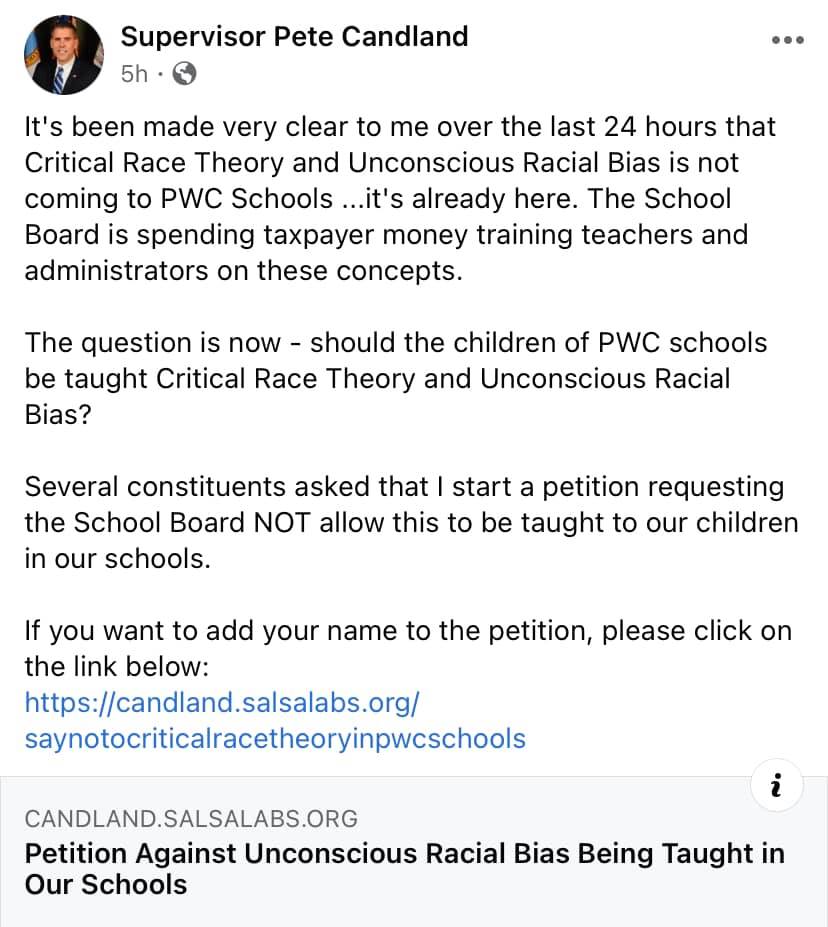
Earlier this week during a joint session between the Prince William Board of County Supervisors and the School Board, Maria Burgos, a long time educator and expert in the field of implicit bias training, was providing information about why organizations should invest in this type of training for their staff. Although the discussion was only for 15 minutes, she demonstrated the importance of implicit bias and its benefits for students and staff of all races.
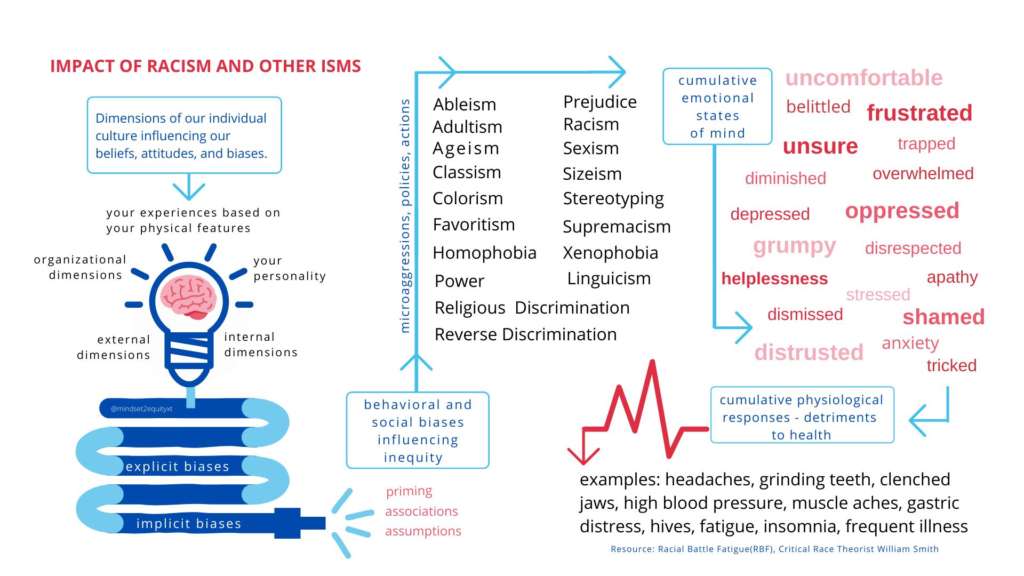
Although the preparation for this session was well known for over a year, Supervisors Candland, Jeanine Lawson (Brentsville) and Yesli Vega (Coles) left the session and posted a Facebook live video stating that implicit bias training was not needed and that tax dollars should not be spent on “hyper-progressive” issues such as race and diversity.
Fortunately, the community has taken a stand against such divisive rhetoric and are speaking out for a better trained workforce. Maggie Hansford, President of the Prince William Education Association, provided historic precedent to why implicit bias training is a must for school staff. She released the following in a statement posted on Facebook:
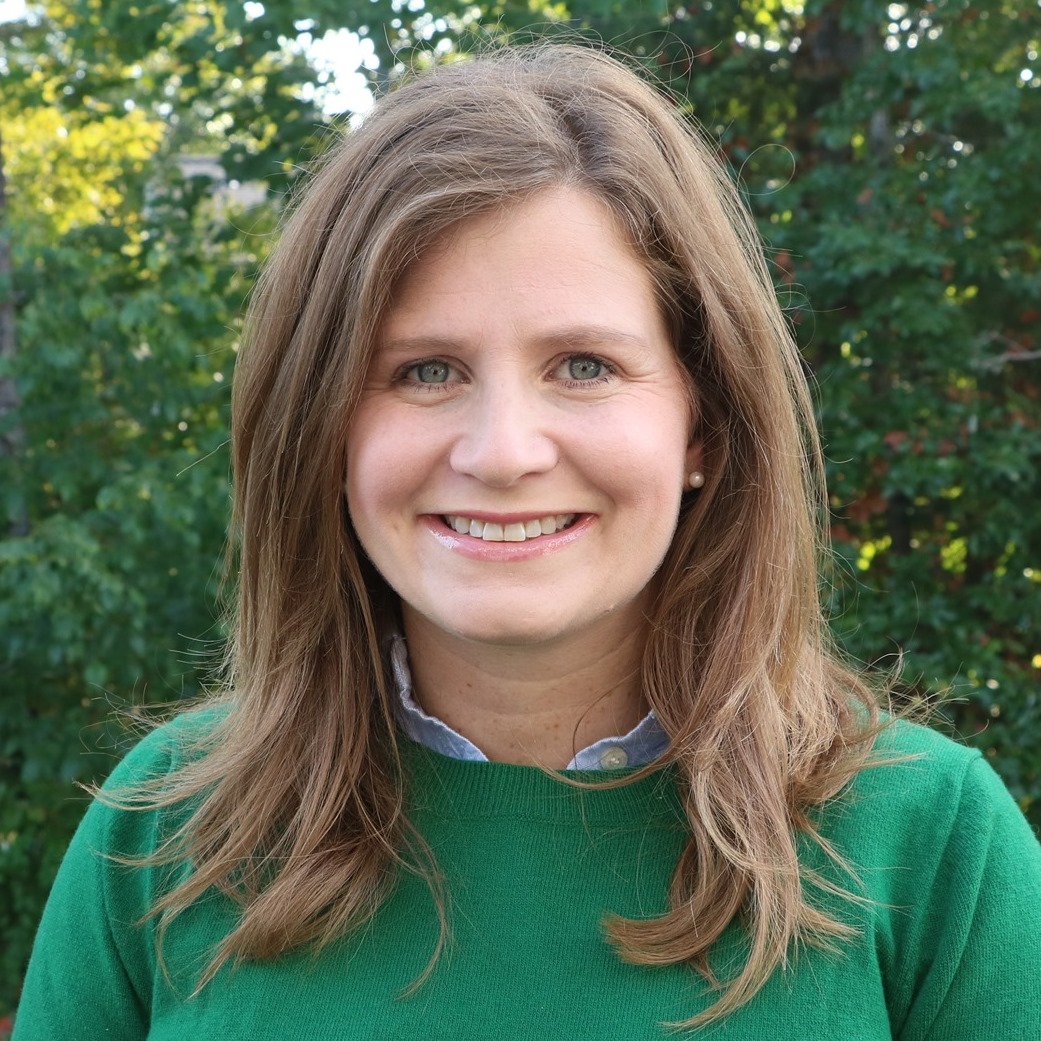 “Chairman (Babur) Lateef and Vice Chairwoman (Loree) Williams are willing to participate in hard conversations and agreed to add informative slides to raise awareness of unconscious bias to foster inclusivity and equity to the joint School Board/BOCS work session…Additionally, no one can deny that our students are facing unprecedented challenges in the educational process, or that distance learning presents challenges for all. This is a national issue and not one unique to PWC.”
“Chairman (Babur) Lateef and Vice Chairwoman (Loree) Williams are willing to participate in hard conversations and agreed to add informative slides to raise awareness of unconscious bias to foster inclusivity and equity to the joint School Board/BOCS work session…Additionally, no one can deny that our students are facing unprecedented challenges in the educational process, or that distance learning presents challenges for all. This is a national issue and not one unique to PWC.”
She challenged the petition created by Candland while simultaneously stating the facts about the horrific impacts of implicit bias on children. “Recognizing that PWC is a majority minority county, creating a more inclusive community by addressing the need to acknowledge implicit and unconscious racial bias is imperative to work on; along with traffic gridlock, quality of education for our children, and public safety. Educating ourselves, staff, and community on the negative impact implicit and unconscious racial bias creates should be a bipartisan issue. Openly writing a letter to the community refusing to educate yourself or allocate tax dollars to racial injustice is a direct side effect of white privilege.”
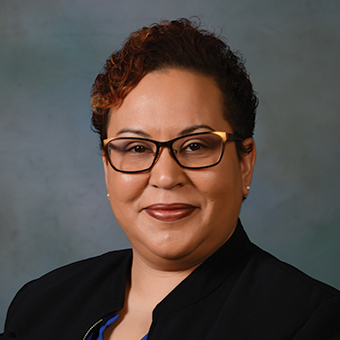 Williams, who has been a long time advocate for mandatory implicit bias training, spoke with the PW Perspective after the meeting to discuss how the training empowers local communities as a whole. “This has been in the works for over a year, and the studies have proven that there is a definite need to train our teachers and staff about a problem that has been in our schools for decades. We have become an increasingly diverse community, and cannot ignore the fact that there are hidden biases which have to be dealt with in order to improve the lives of our students. Everyone benefits in the long run when teachers and administration have been trained to not only recognize these biases, but create solutions to help change them.”
Williams, who has been a long time advocate for mandatory implicit bias training, spoke with the PW Perspective after the meeting to discuss how the training empowers local communities as a whole. “This has been in the works for over a year, and the studies have proven that there is a definite need to train our teachers and staff about a problem that has been in our schools for decades. We have become an increasingly diverse community, and cannot ignore the fact that there are hidden biases which have to be dealt with in order to improve the lives of our students. Everyone benefits in the long run when teachers and administration have been trained to not only recognize these biases, but create solutions to help change them.”
One constituent, who asked to be anonymous, spoke with the PW Perspective about the impact that not having implicit bias training has on the academic development of Black and Brown children. “Bias is the reason moms of color who can do so will choose to homeschool their kids. Until this training occurs, we have to protect our children, especially our Brown boys.”
“However, I will stand with the Prince William community to continue advocating for the training, the education, and the system to change and reflect inclusive values that is demonstrated with data to back up whether we are truly making change. This education is the start to that, and is the result of many years of sounding the alarm to school leaders. We got here and now we are not going backwards.”

